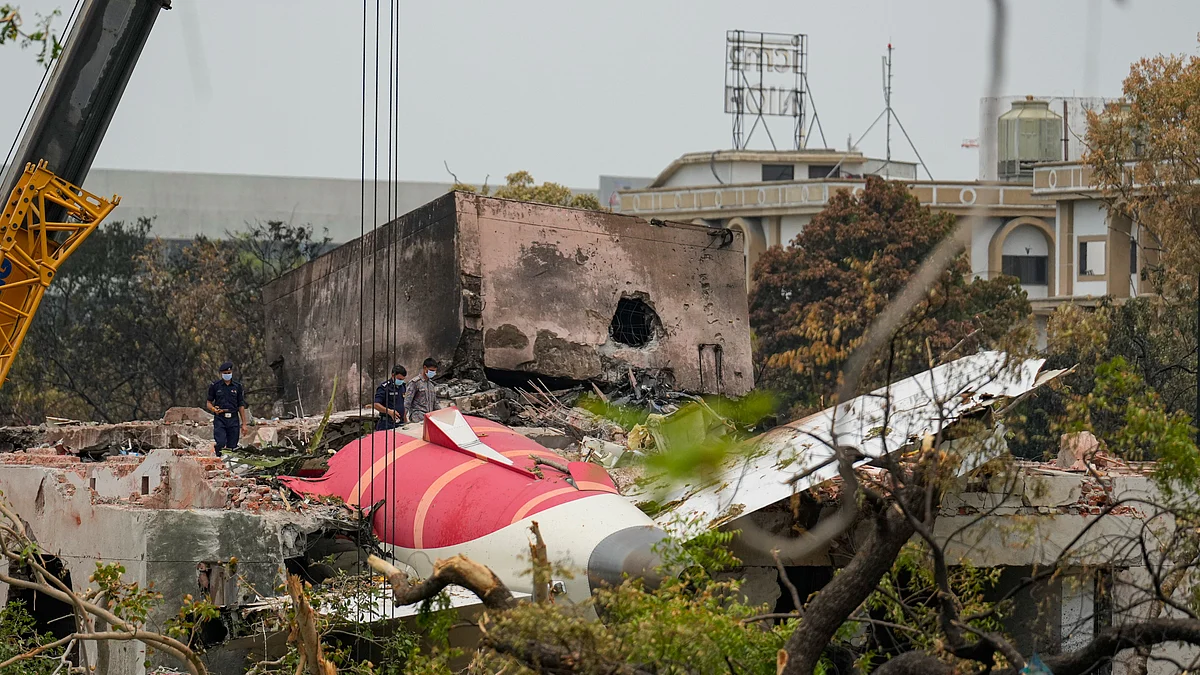AAIB officials accused of overstepping mandate in Air India crash probe
Pushkar Raj Sabharwal, father of Capt. Sumeet Sabharwal, approaches Federation of Indian Pilots over AI 171 crash probe

Officials from the Aircraft Accident Investigation Bureau (AAIB) have come under scrutiny after allegedly using a condolence visit to the family of Capt. Sumeet Sabharwal to hint at pilot error in the ongoing Air India crash probe.
On 30 August 2025, the team reportedly told Capt. Sabharwal’s father that cockpit voice recorder (CVR) data and layered voice analysis suggested he may have deliberately moved the aircraft’s fuel control switches from “RUN” to “CUTOFF” moments after take-off.
This visit and the manner of questioning were considered inappropriate and speculative by Capt. Sabharwal's father, Pushkar Raj Sabharwal, a retired DGCA official, who viewed it as a character assassination and a premature narrative that prejudged his son's role in the accident. The Federation of Indian Pilots has condemned this action by AAIB and demanded a judicial inquiry into the crash investigation to ensure fairness and transparency.
The father is also pursuing legal action and has requested additional government investigation, concerned about the integrity of the ongoing probe and media speculation causing distress.
Pushkar Raj Sabharwal, the father of Capt. Sumeet Sabharwal, has approached the Federation of Indian Pilots (FIP) regarding the investigation of the Air India flight AI 171 crash.
He alleged that AAIB officials made an unsolicited visit to his home on 30 August under the guise of offering condolences, during which they insinuated, based on selective interpretation of cockpit voice recorder data, that his son deliberately moved the engine fuel control switches to the cutoff position after take-off.
The FIP has strongly condemned this visit as a gross overreach of the AAIB's mandate and a premature attempt to establish a pilot error narrative.
The Federation has demanded a judicial inquiry through a court of inquiry, arguing that the AAIB’s investigation is compromised, biased, and tainted by unlawful media leaks. They call for a transparent and independent probe led by a retired Supreme Court judge and supported by aviation experts, citing concerns that the current process undermines public and industry confidence and fails to meet international investigative standards.
The FIP and Pushkar Raj Sabharwal argue that this judicial inquiry is essential to uphold justice, protect Capt. Sabharwal's legacy, and prevent systemic issues from being overlooked amid speculative blame on pilot error.
The Federation of Indian Pilots (FIP) has formally urged the Civil Aviation Ministry to constitute a 'Court of Inquiry', headed by a retired Supreme Court judge into the 12 June crash of Air India Flight AI 171, alleging that the ongoing probe by the Aircraft Accident Investigation Bureau (AAIB) has been compromised.
In a letter dated 22 September 2025, pilots' body said the Aviation probe body's conduct had "fundamentally and irrevocably compromised the integrity, impartiality and legality" of the investigation into the crash of the Boeing 787-8 aircraft (VT-ANB) operating from Ahmedabad to London Gatwick.
The accident killed two senior pilots, 10 cabin crew members, 229 passengers and 19 people on the ground, making it one of the worst aviation disasters in India's history.
The pilots' body alleged that Aviation probe body officials engaged in "procedural and ethical breaches," including an unsolicited visit to the residence of Capt. Sumeet Sabharwal's 91-year-old father, where they allegedly suggested pilot error using a "selective cockpit voice recorder (CVR) interpretation" and "layered voice analysis.".
The pilots' body said this amounted to framing a "pilot error" narrative prematurely, while diverting attention from possible systemic causes such as manufacturing or maintenance lapses. It also accused Aviation probe body of leaking protected CVR details to the media, fuelling "character assassination" of Capt. Sabharwal, a veteran pilot with over 15,600 flying hours.
"This act of 'poisoning the well' serves to frame the victim as the perpetrator from the outset," the letter stated, adding that the leaks violated Rule 17(5) of the Aircraft (Investigation of Accidents and Incidents) Rules, 2017, which prohibits disclosure of cockpit recordings.
The pilots' body said only a judicially led Court of Inquiry, with "all the powers of a civil court," can restore credibility. It proposed that the probe be presided over by a retired Supreme Court judge, assisted by independent experts in aircraft maintenance, avionics, human factors, and flight operations.
The pilots' body also drew parallels with the 2010 Mangalore Air India Express crash, which was investigated by a Court of Inquiry headed by a retired Air Marshal, and with the Boeing 737 MAX tragedies, where premature focus on pilot error initially obscured deeper design flaws.
"The current AAIB probe has already failed to meet the minimum standard of independence," the pilots' body said, warning that continuing along this path would damage India's aviation safety credibility and expose the government to international scrutiny.
The federation has demanded for an immediate constitution of a Court of Inquiry under Rule 12 of the Aircraft Investigation Rules, 2017, alongside a judicially led panel with independent technical experts.
The pilots' also call for a formal censure of Aviation probe body, directing it to stop extra-judicial commentary and media leaks, while reaffirming that accident investigations are meant for safety prevention, not apportioning blame.
In an attached letter, Capt. Sabharwal's father, Pushkar Raj Sabharwal, described how the Aviation probe body's officials confronted him with speculative claims about his son. "At 91 years of age, I seek no favour, only fairness," he wrote, urging that his son's dignity and due process be preserved.
The pilots' body said the demand was not just about protecting one pilot's legacy, but about safeguarding the credibility of India's air accident investigations. "A compromised, biased investigation that defaults to a simplistic and convenient 'pilot error' narrative is the single greatest threat," the pilots' body said.
With agency inputs
Follow us on: Facebook, Twitter, Google News, Instagram
Join our official telegram channel (@nationalherald) and stay updated with the latest headlines
